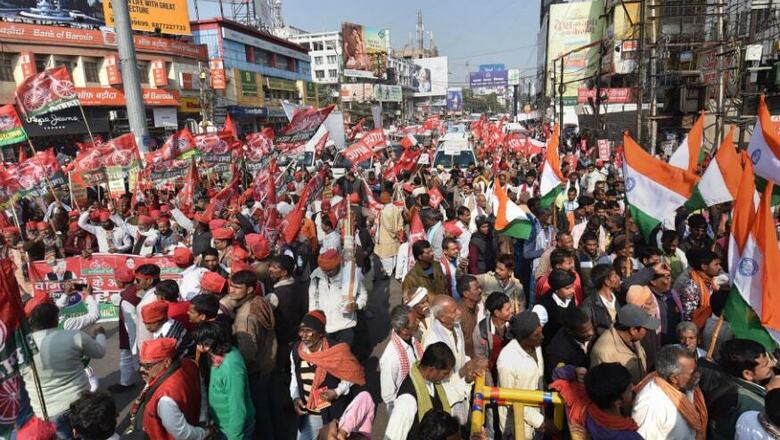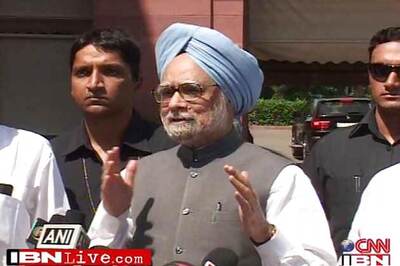
views
Mumbai: The two-day strike by the central trade unions across spheres had a mixed impact in the financial capital on the last day Wednesday, with activities not being impacted much.
Most banks, including the state-run ones which have higher quantum of unionised workers, continued with normal operations on the second day of the two-day strike that began on Tuesday, when most of the civic buses kept off the road.
The strike was called by 10 central trade unions, except the Bharatiya Mazdor Sangh which is affiliated to the ruling BJP, but the unions claimed that close to 14 crore workers and employees from various public and private sector organisations joined the move.
The strike call was given to oppose various economic policies and proposed labor reforms by the Modi government.
The unions claimed that policies such as disinvestment of public sector units, allowing foreign investment in various sectors and other such anti-labour policies have led to job losses in various government, semi-government and private sector companies.
When contacted, a senior official from the Mumbai Port Trust said regular operations at the port, one of the oldest in the country, were not impacted because of the strike.
The port had made alternate arrangements because of the strike call, but none of those had to be activated as the workers did not strike at all, the official claimed.
At the Bhabha Atomic Research Centre here, the country's premier institution on nuclear science, the response to the strike was subdued, the president of National Federation of Atomic Energy Employees Prashant Worlikar said, attributing it to scientists and students who were not part of the strike.
He, however, said the response to the strike was better in other units of the Department of Atomic Energy, including at the Kalpakkam, Kota and Hyderabad centres.
Trade unions from the banking sector like the All-India Bank Employees Association and Bank Employees Federation of India had given a call for strike against privatisation of banks and consolidation in the banking sector.



















Comments
0 comment